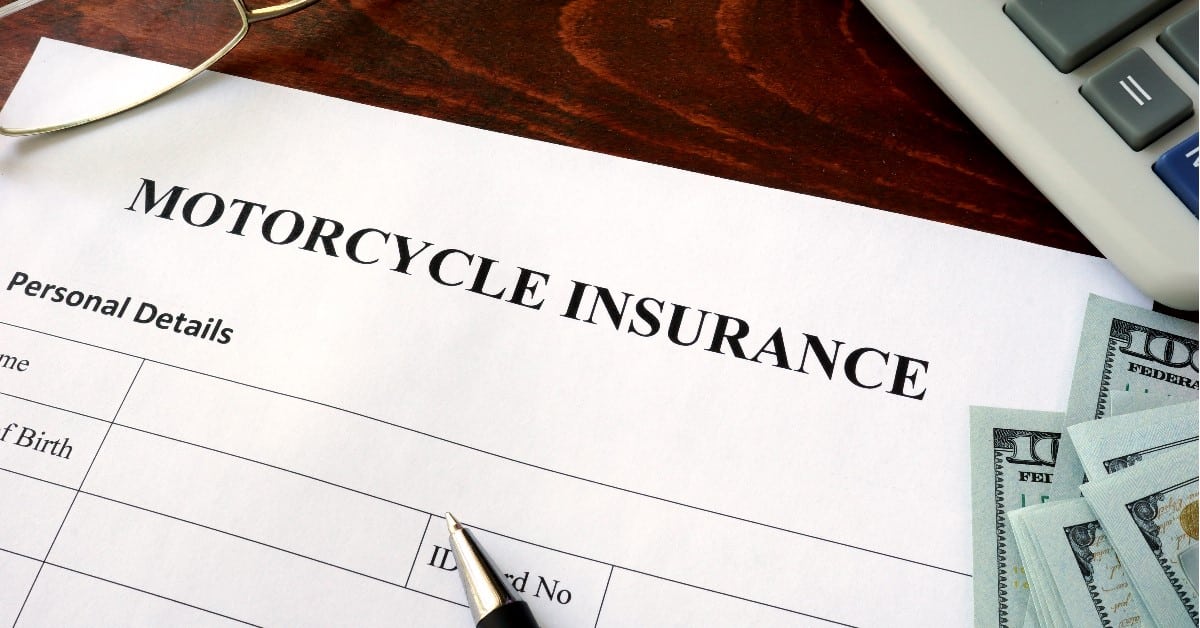The Sunshine State stands out in many wonderful ways: we have beautiful weather, gorgeous beaches, hot nightlife, fabulous restaurants, and miles of open road along stunning landscapes for joy riders to savor. Florida is also unique when it comes to laws dealing with motorcycles. Insurance is a source of particular confusion for riders. What motorcycle safety tips do you need to know before you hit the road?
Top Tip of Motorcycle Accident Attorneys: Protect Yourself
If you’re thinking about insurance, you may believe that PIP has you covered. Florida is a “no fault” state: that is, regardless of who causes an accident, Personal Injury Protection covers medical expenses. All drivers are required to carry PIP insurance – all drivers of vehicles with four or more wheels, that is.
PIP leaves motorcyclists out in the cold, even if you already carry this insurance for a four-wheeled vehicle. This puts you in a dangerous position; accidents involving motorcycles are far more likely to be severe because of the lack of structural support. In other words, you don’t have four walls, airbags, and a roof protecting you from harm.
Here’s another area in which Florida is different from the rest of the nation: this state is the most hazardous for motorcyclists. Now, it is important to remember that helmet laws are more lenient than in most states (riders over 21 years of age do not have to wear a helmet if they carry the requisite amount of insurance – more on that in a bit) and that Florida’s weather allows year-round riding. These factors push accident statistics in the wrong direction.
Another fact worth remembering: according to research by the Florida Department of Transportation, most motorcycle/vehicle accidents are caused by the drivers of larger cars and trucks. The most common causes include:
- Failure to see motorcycles in traffic.
- Failure to yield right of way.
- Distracted driving (such as texting).
- Reckless driving and driving under the influence.
Fact: PIP does not cover you. If you do not have motorcycle insurance, you are putting yourself in serious medical and financial danger.
What Does the Law Say?
Do you need insurance if you operate a motorcycle? No, and yes. You do not need insurance to register your motorcycle. But if you are in an accident, you are financially responsible. That’s right: you could be hurt, unable to work, and still holding the bag when it comes to medical expenses – even if you did not cause the accident.
If you are charged or found at fault in an accident and do not carry the proper insurance, you can face severe consequences, including:
- Suspension of your driving privileges.
- Suspension of your tag and registration.
- Being required to purchase bodily injury/property damage coverage for three years.
- Civil judgments.
Fact: You do not need motorcycle insurance – until after you’ve been in an accident! If you don’t have motorcycle-specific insurance, you are responsible for the financial burden of an accident.
Your Options
One of the most important motorcycle safety tips has nothing to do with how you drive. It has to do with how you protect yourself. What are your options?
- Insurance. Purchase liability coverage from a carrier licensed in Florida. Please consider adding First-Party (or Medical Expense) and Uninsured / Underinsured Motorist coverage. The small additional cost more than pays you back if you are in an accident.
- Financial Responsibility Certificate. Post a surety bond with a state licensed company. You can deposit either securities or cash with the Department of Highway Safety and Motor Vehicles.
- Self-Insure. Provide evidence of “net unencumbered capital” (money/securities) to the Bureau of Financial Responsibility. These are your monies, but they can be used in the event of an accident. You can then obtain a certificate for self-insurance.
Fact: Each of these methods help to protect you in the event of an accident. Buying insurance through a carrier is the easiest, most common method.
What About Helmets?
You may have heard that in Florida, you don’t have to wear a helmet when you operate a motorcycle. Not quite. You don’t have to wear a helmet if:
- You are over 21 years of age
AND…
- You carry an insurance policy with at least $10,000 in medical benefits to cover injuries resulting from an accident.
Fact: You can reduce your risk of serious head injury/brain trauma and death by wearing a DOT-approved helmet. If you choose not to, make sure you carry the appropriate insurance.
What If You Are Involved In a Motorcycle Accident?
Even if you do have insurance (and you should!), contact an experienced motorcycle accident attorney immediately. Before you call your insurance company? That’s up to you, but it can help to speak with a lawyer first.
Insurance companies are profit-making businesses. They simply are not going to hand out money if they can find loopholes and excuses to reduce or deny claims. Their goal is to minimize their liability; as a result, they may low-ball a compensation offer or require you to sign a waiver releasing them from all further liability. This can come back to haunt you if you have long-lasting medical issues or accident-related conditions that become apparent or worse over time.
An attorney can communicate and negotiate with the insurance company on your behalf, ensuring you get the compensation you are owed. If it must go further than that, they can build a strong, thoroughly researched case to present in court.
Fact: LaBovickLaw Group has decades of collective experience in personal injury law. Motorcyclists need a passionate advocate on their side in the aftermath of an accident – do not settle for less than the full compensation you deserve.
You can conscientiously follow every motorcycle safety tip and law in the book and still be involved in an accident. Insurance helps protect your financial and medical needs. And the LaBovick Law Group team steps up to safeguard your rights.






